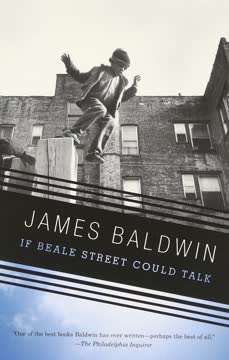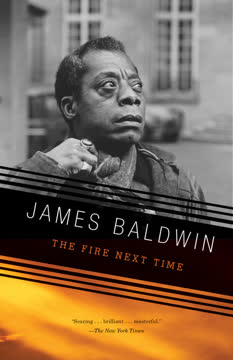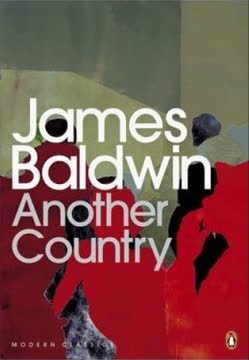Plot Summary
Glass Between Lovers
Tish, a nineteen-year-old Harlem woman, visits her fiancé Fonny, who is unjustly imprisoned. Their conversation, mediated by a glass wall and a telephone, is tender but fraught with fear and longing. Tish reveals she is pregnant, and the news is both a beacon of hope and a source of anxiety. The glass between them becomes a symbol of the barriers imposed by a racist system, and the couple's determination to hold onto love despite separation sets the emotional tone for the story.
Harlem Roots, Harlem Dreams
Tish and Fonny's history is rooted in the streets of Harlem, where they grew up as neighbors and friends. Their bond, forged through shared struggles and small joys, evolves into a deep, romantic connection. The narrative explores their families' backgrounds, the challenges of poverty, and the subtle ways in which their environment shapes their dreams and resilience. Harlem is both a nurturing and oppressive force, shaping the couple's sense of identity and belonging.
Family Bonds and Fractures
The Rivers and Hunt families gather to hear Tish's pregnancy news. While Tish's family responds with support and love, Fonny's family—especially his sanctimonious mother and sisters—reacts with judgment and hostility. The scene erupts into confrontation, exposing generational wounds, colorism, and the complexities of Black family life. Despite the discord, Tish's family's unwavering support becomes a lifeline for her and Fonny.
Love in the Shadows
Tish and Fonny's love story is recounted through memories of their first date, their first time making love, and the quiet moments that define their relationship. Their physical and emotional intimacy is a sanctuary from the world's hostility. The narrative lingers on the sacredness of their union, the vulnerability of first love, and the way their connection gives them strength to face external threats.
The Proposal and the Promise
After their first night together, Fonny proposes marriage. The couple seeks the blessing of Tish's parents, who, after some initial concern, give their support. The promise of marriage is both a declaration of love and an act of defiance against a society that seeks to keep them apart. Their plans for a future together—finding a loft, building a home—are shadowed by Fonny's legal troubles but remain a source of hope.
Injustice Strikes
Fonny is arrested for a crime he did not commit: the rape of a Puerto Rican woman, Victoria Rogers. The accusation is based on the testimony of a racist cop, Officer Bell, who has a vendetta against Fonny. The legal system's indifference and corruption become clear as the family struggles to find a lawyer and gather evidence. The chapter exposes the vulnerability of Black men to police violence and judicial bias.
The Weight of Evidence
The case against Fonny hinges on the coerced testimony of Victoria Rogers and the manipulations of Officer Bell. Tish's family, with the help of lawyer Hayward, tries to locate Victoria, who has disappeared, and to secure the testimony of Daniel, Fonny's friend, who is also being intimidated by the authorities. The narrative details the labyrinthine obstacles faced by the family as they attempt to prove Fonny's innocence.
Sisterhood and Survival
Tish's mother, Sharon, and her sister, Ernestine, become central figures in the fight for Fonny's freedom. Sharon travels to Puerto Rico to find Victoria, confronting language barriers, poverty, and the trauma of the alleged victim. Ernestine strategizes with the lawyer and supports Tish emotionally. The women's solidarity and resourcefulness highlight the often-unseen labor of Black women in sustaining families and seeking justice.
Fathers' Desperate Measures
Tish's father, Joseph, and Fonny's father, Frank, are pushed to the brink by the injustice facing their children. They take on extra work, steal, and consider illegal means to raise money for Fonny's bail and legal fees. Their actions are driven by love and desperation, revealing the lengths to which parents will go to protect their children in a hostile world.
The Search for Truth
Sharon's trip to Puerto Rico is a harrowing odyssey. She navigates unfamiliar terrain, confronts Victoria, and pleads for the truth. The encounter is fraught with pain and ambiguity—Victoria is traumatized, and the system's manipulation is evident. Sharon's efforts underscore the global reach of injustice and the personal cost of seeking justice for loved ones.
Puerto Rican Crossroads
Sharon's interactions in Puerto Rico reveal the interconnectedness of oppression across borders. The poverty and marginalization she witnesses mirror the struggles of Harlem. Victoria's breakdown and disappearance further complicate the case, leaving the family in limbo. The chapter explores the limits of empathy and the ways trauma silences victims and witnesses alike.
Prison Walls, Prison Fears
Fonny's experience in jail is depicted in visceral detail—loneliness, fear, violence, and the constant threat of dehumanization. He endures physical and psychological assaults but clings to memories of Tish and the hope of seeing his child. Prison becomes a crucible, hardening Fonny but also deepening his resolve to survive and return to his family.
Hope and Despair Collide
The family's efforts to free Fonny are met with repeated setbacks: Victoria's disappearance, Daniel's intimidation, and the ever-present threat of the legal system. Frank, Fonny's father, loses his job and, overwhelmed by guilt and helplessness, disappears. The family's unity is tested, but their love and determination persist.
The Cost of Freedom
The financial and emotional toll of Fonny's incarceration mounts. The family exhausts their resources, and Tish is forced to quit her job to focus on her pregnancy and visiting Fonny. The narrative highlights the systemic barriers that keep Black families in cycles of poverty and struggle, even as they fight for basic justice.
The Baby's Arrival
As Tish's pregnancy progresses, the family prepares for the baby's arrival. The birth is both a moment of joy and a reminder of Fonny's absence. The baby's cries echo the family's longing for reunion and justice. The chapter ends with a sense of hope tempered by the reality of ongoing struggle.
Endurance and Becoming
The story closes with Tish and Fonny's enduring love, the family's resilience, and the unresolved fight for Fonny's freedom. The narrative affirms the power of love to sustain and transform, even in the face of relentless adversity. The final image is one of hope: the baby's life as a testament to survival and the possibility of a better future.
Characters
Tish (Clementine Rivers)
Tish is the heart of the novel—a young Black woman whose voice is both vulnerable and fiercely determined. Her love for Fonny is unwavering, and her pregnancy becomes a symbol of hope and continuity. Tish's psychological journey is marked by fear, isolation, and moments of despair, but she draws strength from her family and her commitment to Fonny. Her perspective exposes the daily indignities of racism and the quiet heroism required to endure and resist.
Fonny (Alonzo Hunt)
Fonny is a sculptor with a gentle spirit and a deep sense of pride. His relationship with Tish is the emotional core of the story. Fonny's wrongful imprisonment is both a personal tragedy and an indictment of systemic racism. In jail, he is tested physically and emotionally, but his love for Tish and their unborn child sustains him. Fonny's development is marked by a loss of innocence and a hardening resolve to survive and reclaim his life.
Sharon Rivers
Sharon is Tish's mother, a woman of quiet strength and wisdom. She is the family's anchor, offering comfort and guidance to Tish while taking bold action to help Fonny. Sharon's journey to Puerto Rico reveals her resourcefulness and her willingness to confront danger for the sake of justice. Her character embodies the sacrifices and resilience of Black mothers.
Joseph Rivers
Joseph is Tish's father, a dockworker who shoulders the family's burdens with stoic resolve. He is pragmatic, loving, and willing to bend the rules to protect his family. Joseph's relationship with Tish is tender, and his partnership with Frank highlights the solidarity among Black men facing systemic oppression. His psychological complexity is revealed in moments of vulnerability and fierce protectiveness.
Ernestine Rivers
Ernestine, Tish's older sister, is sharp, outspoken, and deeply committed to her family. She navigates the legal system, supports Tish emotionally, and confronts Fonny's family when necessary. Ernestine's psychological insight and willingness to challenge authority make her a key figure in the family's fight for justice.
Frank Hunt
Frank is Fonny's father, a man who has endured disappointment and loss. His love for Fonny is profound, and he is willing to risk everything to free his son. Frank's psychological unraveling—culminating in his disappearance—reflects the crushing weight of systemic racism on Black fathers.
Mrs. Hunt (Alice Hunt)
Mrs. Hunt is Fonny's mother, whose religious fervor and colorism create tension within the family. She is unable to support Fonny or Tish, and her judgmental attitude exacerbates the family's pain. Her character represents internalized racism and the generational divides within Black communities.
Adrienne and Sheila Hunt
Fonny's sisters, Adrienne and Sheila, are distant and unsupportive, shaped by their mother's values and their own frustrations. Their interactions with Tish and the Rivers family highlight issues of respectability, colorism, and the fragmentation of Black families under pressure.
Daniel Carty
Daniel is Fonny's childhood friend, recently released from prison after being falsely accused. His experience with the criminal justice system leaves him scarred and fearful. Daniel's testimony is crucial to Fonny's case, but he is vulnerable to intimidation and manipulation by the authorities.
Victoria Rogers
Victoria is the Puerto Rican woman whose accusation leads to Fonny's arrest. She is a complex figure—traumatized, manipulated, and ultimately silenced by the system. Her interactions with Sharon reveal the layers of pain and the ways in which victims are used by those in power.
Plot Devices
Nonlinear Narrative and Memory
Baldwin structures the novel with a fluid, nonlinear narrative, moving between present-day struggles and memories of the past. This device deepens the emotional resonance, allowing readers to see the roots of Tish and Fonny's love and the cumulative impact of injustice. The interplay of memory and present action creates a sense of inevitability and loss, while also highlighting moments of joy and connection.
Symbolism of Barriers
The glass wall in the prison, the locked doors, and the distance between Harlem and Puerto Rico all serve as symbols of the obstacles faced by the characters. These barriers are not just physical but represent the systemic forces—racism, poverty, legal injustice—that keep families apart and dreams deferred.
Foreshadowing and Irony
Baldwin uses foreshadowing to build tension, as early warnings about the dangers of the city and the police come to fruition in Fonny's arrest. Irony is present in the family's efforts to build a future even as the past and present conspire against them. The juxtaposition of hope and despair underscores the precariousness of Black life in America.
Intergenerational Conflict
The clashes between parents and children, sisters and brothers, and within and between families mirror the societal conflicts of race, class, and gender. These personal struggles are microcosms of the larger battles for dignity and justice.
The Unseen Labor of Women
The narrative foregrounds the emotional, logistical, and physical labor performed by Tish, Sharon, and Ernestine. Their efforts—often invisible and unacknowledged—are essential to the family's survival and resistance.
Analysis
"If Beale Street Could Talk" is James Baldwin's urgent, intimate exploration of the ways racism, poverty, and the criminal justice system conspire to destroy Black lives and families. Through Tish and Fonny's love story, Baldwin exposes the daily indignities and existential threats faced by Black Americans, while also affirming the power of love, family, and community to resist and endure. The novel's nonlinear structure, rich characterizations, and poetic language invite readers to feel the weight of history and the immediacy of personal pain. Baldwin's message is clear: justice is not merely a legal matter but a moral imperative, and the survival of Black families is an act of resistance. The story's unresolved ending reflects the ongoing nature of the struggle, leaving readers with both heartbreak and hope—a call to witness, remember, and act.
Last updated:
Review Summary
If Beale Street Could Talk is a powerful novel about racial injustice in 1970s New York. It follows young couple Tish and Fonny as they face Fonny's wrongful imprisonment. Baldwin's lyrical prose and raw emotion resonate with readers, exploring themes of love, family, and systemic racism. While some criticize the characterization and explicit content, many praise the book's urgency and relevance. The novel's unflinching portrayal of racial inequality and its impact on Black families continues to captivate audiences, earning it widespread acclaim and a recent film adaptation.
Similar Books
Download PDF
Download EPUB
.epub digital book format is ideal for reading ebooks on phones, tablets, and e-readers.



















